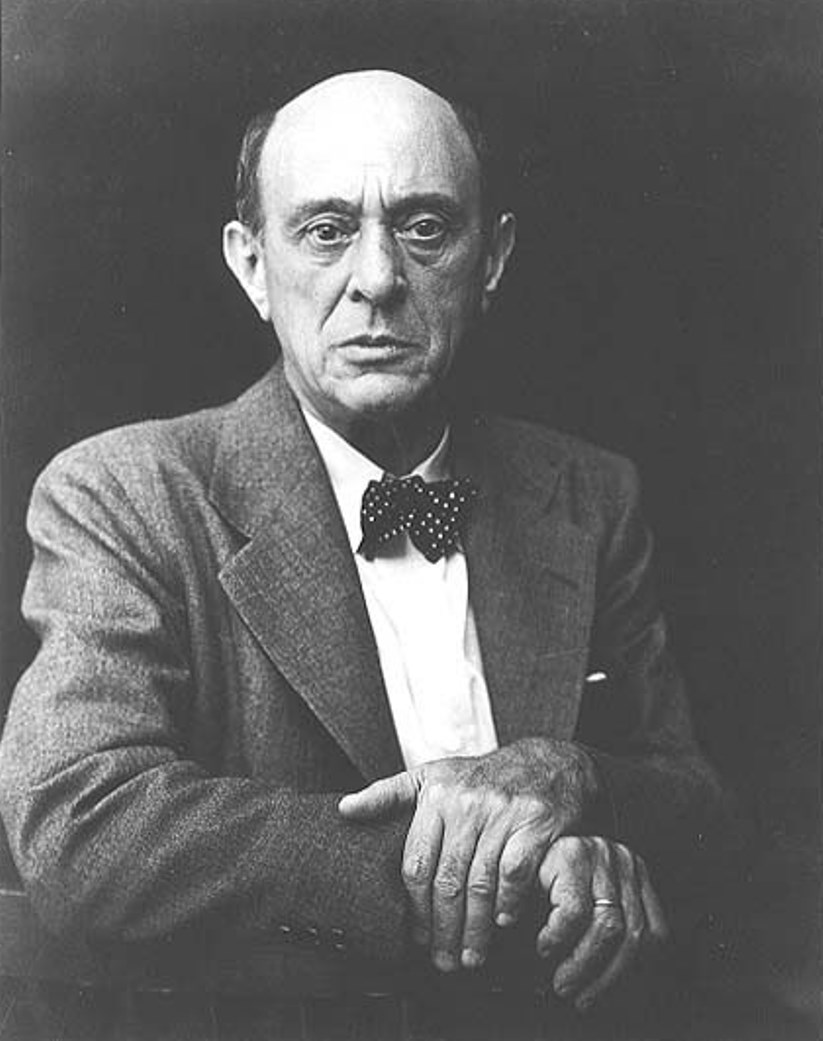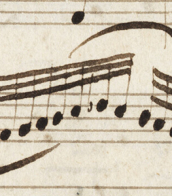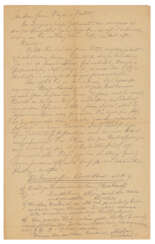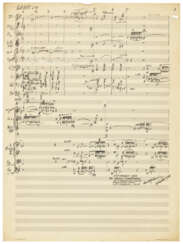Arnold Schoenberg (1874 - 1951) — Auction price

Arnold Schoenberg, real name Arnold Franz Walter Schönberg, was an Austrian and American composer, representative of musical expressionism, teacher, musicologist and conductor.
Schoenberg came from a Jewish family and began studying the violin at the age of eight and later the cello. While working as a bank clerk, he simultaneously studied composition with Alexander Zemlyansky (1871-1942) and soon wrote his first string quartet (1897) to acclaim. With the help of Richard Strauss, he obtained a teaching position in Berlin, and lived for a time in two cities. In 1904, Alban Berg and Anton Webern began studying with Schoenberg, and this largely determined their future artistic careers.
Around 1906, through much experimentation, Schoenberg came to the conclusion that tonality should be abandoned. He created new methods of music-making and composition involving atonality. In the subsequent period of "free atonality" from 1907 to 1916, he composed the monodrama "Reason", "Five Orchestral Pieces", "Pierrot Lunaire" and other works.
In 1933, due to the rise of National Socialism in Germany, Schoenberg was expelled from the country and emigrated to the USA, in 1941 he took American citizenship and taught at the University of California at Los Angeles until 1944. The works of this period demonstrate the composer's ever-increasing skill and freedom in the use of the 12-tone method.
Although Schoenberg was never accepted by the general public, he nevertheless had a significant influence on 20th century music, being the founder of the New Viennese School of Composition.


Arnold Schoenberg, real name Arnold Franz Walter Schönberg, was an Austrian and American composer, representative of musical expressionism, teacher, musicologist and conductor.
Schoenberg came from a Jewish family and began studying the violin at the age of eight and later the cello. While working as a bank clerk, he simultaneously studied composition with Alexander Zemlyansky (1871-1942) and soon wrote his first string quartet (1897) to acclaim. With the help of Richard Strauss, he obtained a teaching position in Berlin, and lived for a time in two cities. In 1904, Alban Berg and Anton Webern began studying with Schoenberg, and this largely determined their future artistic careers.
Around 1906, through much experimentation, Schoenberg came to the conclusion that tonality should be abandoned. He created new methods of music-making and composition involving atonality. In the subsequent period of "free atonality" from 1907 to 1916, he composed the monodrama "Reason", "Five Orchestral Pieces", "Pierrot Lunaire" and other works.
In 1933, due to the rise of National Socialism in Germany, Schoenberg was expelled from the country and emigrated to the USA, in 1941 he took American citizenship and taught at the University of California at Los Angeles until 1944. The works of this period demonstrate the composer's ever-increasing skill and freedom in the use of the 12-tone method.
Although Schoenberg was never accepted by the general public, he nevertheless had a significant influence on 20th century music, being the founder of the New Viennese School of Composition.




